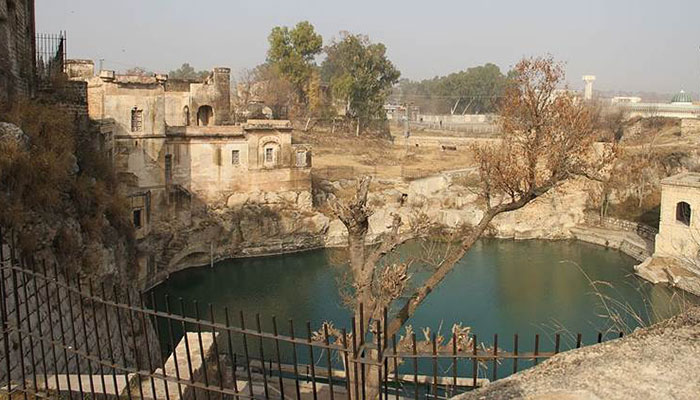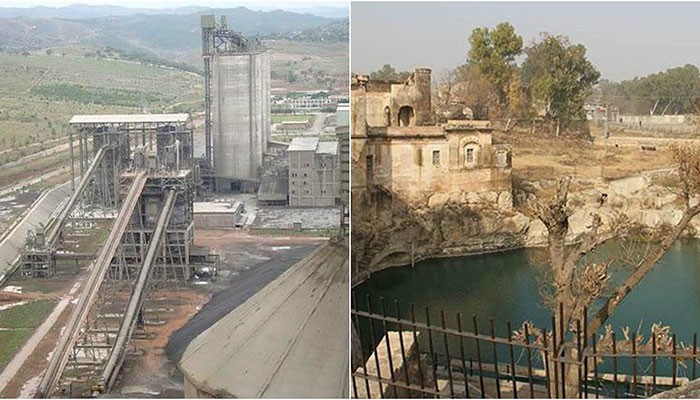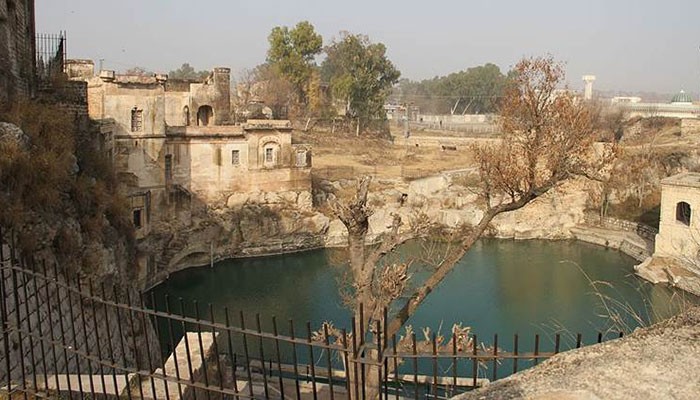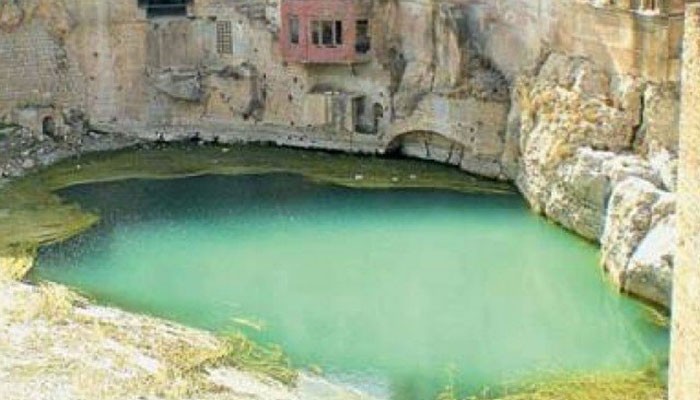Had it not been for CPEC, would've shut down cement factories: CJP
Hearing Katas Raj suo motu case, CJP Justice Saqib Nisar summons officials who allowed cement factories to use underground water
April 23, 2018

ISLAMABAD: Chief Justice of Pakistan Justice Saqib Nisar remarked on Monday that had it not been for the China Pakistan Economic Corridor (CPEC), he would have closed down the cement factories depleting the underground water table in Chakwal.
Hearing the suo motu case of the drying of Katas Raj pond on Monday, the three-member bench headed by the chief justice stated the importance of CPEC for the country.
The historic pond, a revered site for Hindus, is said to have depleted due to operations in the vicinity of several cement factories that have sucked out the underground water.
Moreover, the court ordered the cement factories to produce the permission letters and summoned officers of the Environmental Protection Agency (EPA) that allowed use of tube wells by the cement factories. The hearing was adjourned until tomorrow.
Owners appear in court
As the hearing went under way, the owners of private cement companies appeared in court after having been summoned at the last hearing.
The chief justice inquired from one of the owners if he is also associated with a private bank to which the person replied in the affirmative.
The chief justice observed that the water of the Katas Raj pond depleted due to the work of the factories, adding that, "what right does the cement factory have to use underground water".
To this, the owner responded that the right was given to them by the Punjab government.
The chief justice then asked if the installation of tube wells by the factories was lawful to which the factory's counsel, Makhdoom Ali Khan, informed the court that boring does not require anyone’s permission.
The chief justice then wondered how EPA officials allowed installation of tube wells, observing that the factory uses Rs7 billion worth of water every year.
The chief justice then remarked that this is a matter of fundamental rights, adding that it will take back the cost of using water for three years from the factory owners.
During the hearing, Justice Ijazul Ahsan observed that the use of tube wells will have an adverse effect on the underground water table while Justice Umar Ata Bandial regretted that in the entire country, underground water is utilised without any cost.
Justice Bandial added that if the factory owners and government fail to resolve the matter, the court retains the option of closing down factories.
This sector was left unregulated so everyone could benefit, the chief justice observed further.
The counsel informed the court that they are making arrangements for an alternative supply of water and using two tube wells at present instead of six. He claimed that it would cost Rs2 billion to build a pipeline to supply water from the nearest river.
When the counsel informed the bench that they are using a natural stream for water, the chief justice said they have no right to use it and it is illegal to do so.
'Next generations will not forgive us'
Chief Justice Nisar remarked during proceedings that factory owners have a romance of making money. "The water situation is such that the next generations will not forgive us," he regretted.
Admonishing the factory owners for destroying the environment, Chief Justice Nisar remarked that cement factory owners should also resolve issues of the local population as it is "their corporate responsibility".
We shouldn't just take from this land but give something back too," the chief justice remarked.
Retirement offer?
During the hearing, the chief justice shared that he received a message last night, which could be a joke, that a factory is waiting for him after his retirement.
The counsel for the factory clarified that they are not behind the message.















